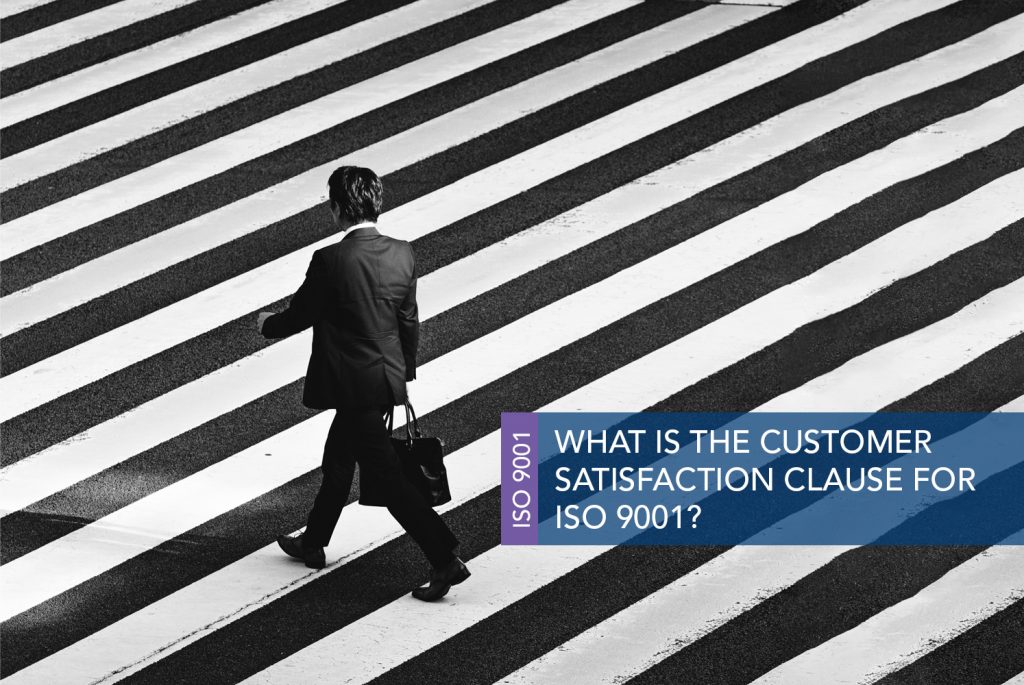
What is the customer satisfaction clause for ISO 9001?
August 29th, 2019 By MarketingOne of the goals of ISO 9001 certification is to increase customer satisfaction. This is achieved by continually monitoring how your product or services meet the requirements or expectations of your customers. There are a few clauses in the standard that mention customer satisfaction but the main one is 9.1.2.
What is the customer satisfaction clause 9.1.2?
The aim of this clause is to ensure organisations develop a systematic approach to measuring the needs of the customer. Note, when we talk about customers, we aren’t just referring to the end users of the product or service. A customer includes any mediators such as distributors who market and sell your product or assemblers that integrate your product into theirs.
So, how do you satisfy this clause? Here’s a simple 3 step process for doing just that.
Step 1 – Determine a strategy for obtaining customer feedback
Create your strategy using the following steps:
- Identify your target audience.
- Ensure that all relevant staff understand what data you will be collecting and decide on which tools you will use to collect the data.
- Determine who is responsible for collecting the data.
- Identify how the data will be analysed and who will do the analysis.
- Decide how you will use the data to improve your services
Step 2 – Identify your customer satisfaction indicators
These indicators will vary depending on your industry, but they could include:
- Delivery Time
- Quality of product/service
- Quality of packaging
- Competitive pricing
- Ability to handle emergency orders
- Conformity to contract
- Customer service
- Handling customer complaints
Interested in knowing more about ISO 9001? Here’s everything you need to know.
Step 3 – Obtain your customer feedback
Actually getting feedback from your customers can be difficult, but there are a number of methods that you could try:
- Sending questionnaires and surveys
- Analysing customer complaints
- Outsourcing to other agencies to get feedback
- Feedback on product returns
- Focus groups
- Direct communication with your customers
It’s important to schedule time for analysis of any feedback you have been given. On the back of any negative feedback, you need to be implementing the necessary changes that aim to resolve the issues raised. Once a change has been implemented, you need to leave sufficient time between implementing a change before you evaluate its effectiveness.
Although receiving negative feedback is essential to ensure you’re constantly improving your business processes, remember that you also need to be celebrating any positive feedback that you receive. Share reviews from happy customers with your employees to keep up morale and motivation.
If you have any more questions about ISO 9001 and what it can do for your business, don’t be afraid to contact us.

Contact Us
For a free Quotation or Remote presentation by an ISO Specialist, contact us today!
IMSM Ltd Head Office
The Gig House
Oxford Street
Malmesbury
Wiltshire
SN16 9AX